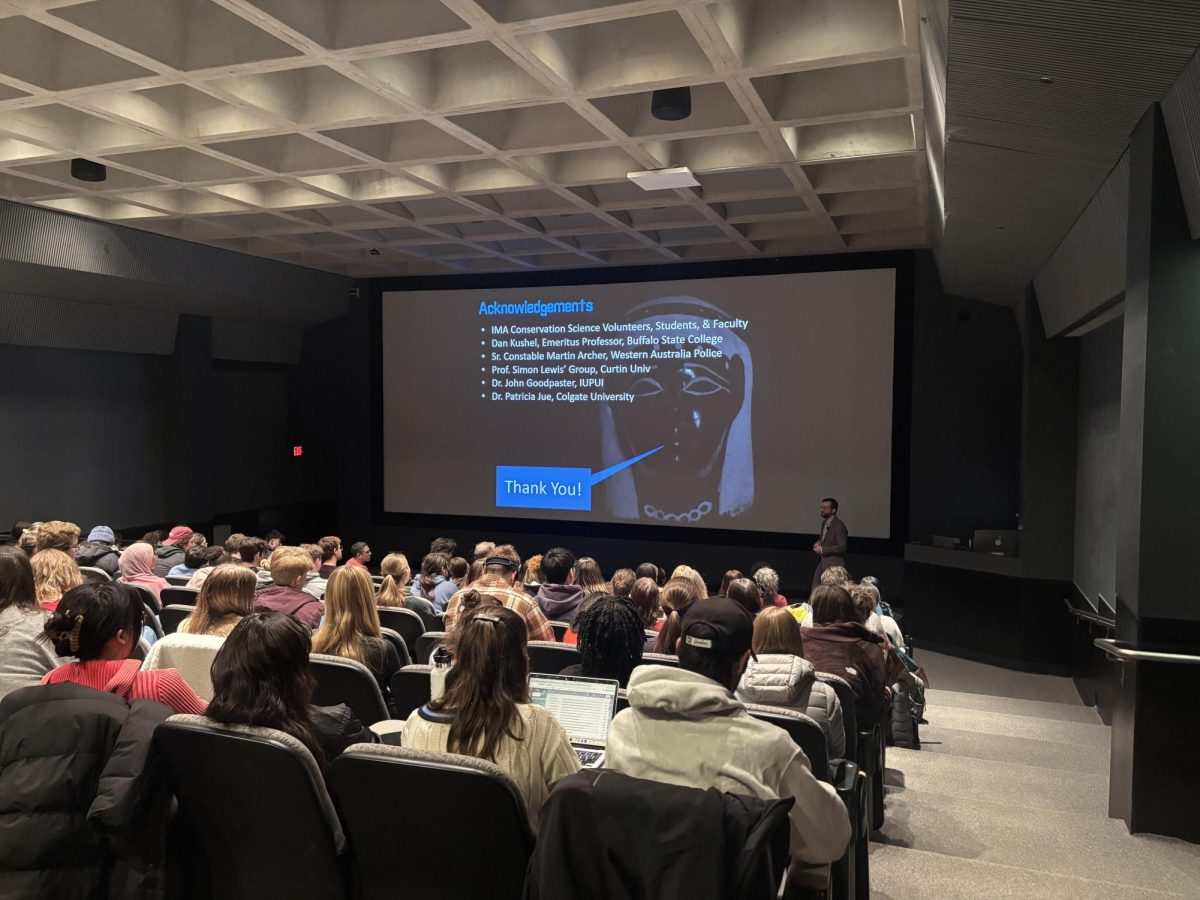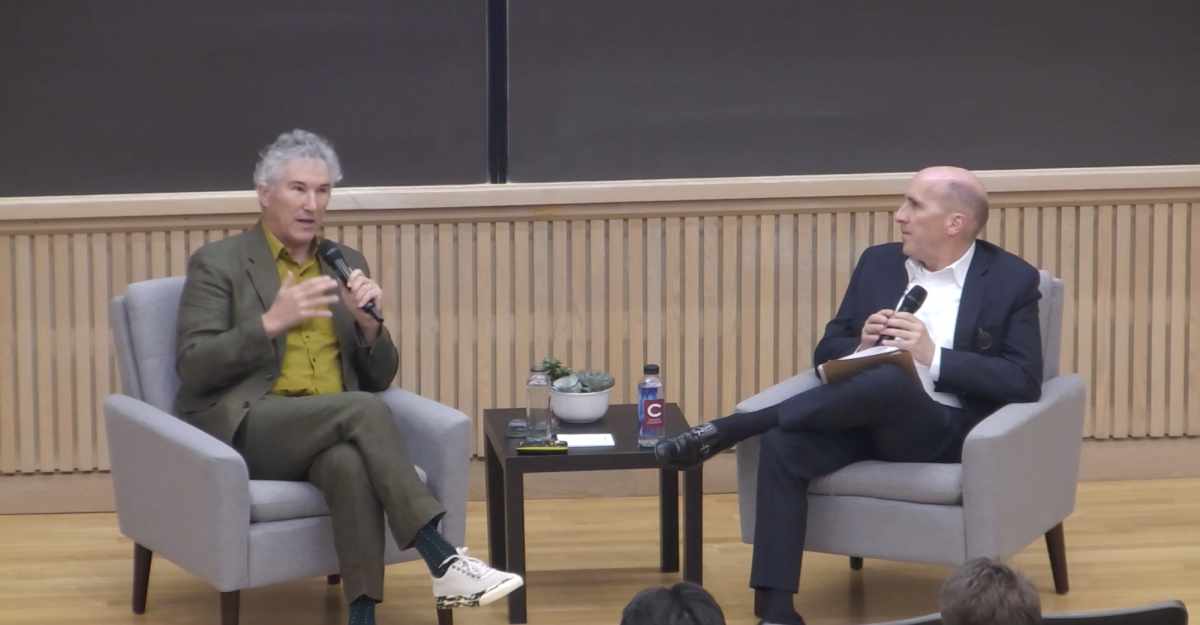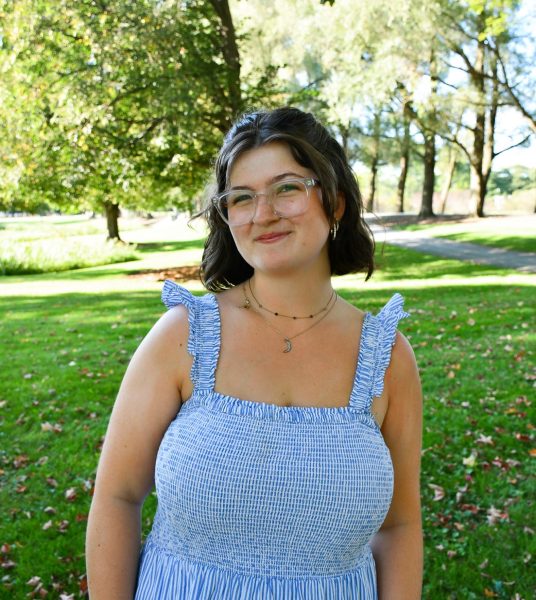Colgate University’s Office of the Chaplains hosted a vigil for those affected by the violence in the Middle East on Tuesday, Oct. 17. Each of the University’s chaplains spoke, as well as Associate Professor of History and Director of the Middle Eastern and Islamic Studies Department Noor Khan.
Chaplain and Catholic Campus Minister Mark Shiner was the first to speak. Shiner offered a prayer for patience within the campus community.
“In this community here, so far physically from the reality of war that our brothers and sisters are now experiencing, help us to remain open-hearted, patient and generous toward each other,” Shiner said. “You have given us the gift of peace here; sustain us in that peace. Help us to listen to each other. Help us to show kindness and compassion to each other here and now. Keep us clear-headed, able to discern the truth in a sea of conflicting information.”
Professor Khan was next to speak. While Khan is not a religious leader, she came to discuss how to work through the anger that comes with conflict.
“It’s so unreasonably difficult to work through pain and anger and sorrow. And the easiest thing to do is to concentrate on the anger,” Khan said. “I’m going to say something different from what I usually say in repudiating anger. I’m going to say let’s figure out how to make that anger fix things.”
As a professor of history, Khan also provided some context for the current conflict occurring in Israel and Palestine.
“I will remind everyone who’s concentrating on Hamas right now that there was no Hamas in 1948 when people were herded into Gaza. There was no Hamas in 1967 when the occupation began. This is a very immediate — yet deep — conflict,” Khan said.
Chaplain and Protestant Campus Minister Corey MacPherson discussed the beauty he has seen on campus when members of different faiths come together.
“As I’ve become more attuned to it, I’ve come to recognize the beauty that surrounds me on Colgate’s campus nearly every day,” MacPherson said. “[Two weeks ago], I witnessed the beauty of the Jewish community gathered together to celebrate Sukkot in their sukkah. Extending warm invitations to friends in the community, regardless of their religious affiliation. […] Additionally, I witnessed another moment of beauty hearing the prayers in Judd Chapel during Jummah on Friday. Then again a few hours later, as the Muslim Student Association graciously invited the entire community to a concert celebrating the Prophet’s birthday.”
MacPherson also discussed how the chaplains have collaborated to process their emotions around current events.
“Last Thursday afternoon, I had an experience that filled me with gratitude. I sat and listened in the meeting as our rabbi engaged in a heartfelt conversation [with our Imam], with mutual respect, as they discussed together how to effectively guide and support our community during these challenging times. The collaboration was a truly beautiful and inspiring moment — one that I hope can serve as an example for us all,” MacPherson said.
Chaplain and Campus Imam Ahmet Celik emphasized the importance of discussing from a place of compassion for one another rather than focusing on what divides people from one another.
“For a moment I will ask myself and all of you to put all of our identities, our orientations [and] our views aside, and try to be like a baby — innocent, pure, nearer to God — and try to find a common ground between all of us and see that you all are coming from the same God,” Celik said. “I know it is almost impossible to be like a baby, pure and innocent. But I believe that before you talk about any issue, anything – especially any crisis – our humanity [and] our world is facing, we [must] find this common ground between us. It is not going to be easy to communicate, to talk [or] to find a solution [otherwise].”
University Chaplain and Campus Rabbi Barry Baron closed the vigil by continuing to emphasize the importance of working together to build a new future.
“In a moment when purity, wisdom and goodness seems strikingly absent, our collective tasks at Colgate, and in other places and situations in which we find ourselves, must be to bring these elements to bear,” Baron said. “It is up to each of us, in the face of destruction, to do what we can to build a better house and grow a larger garden, mustering every ounce of purity, wisdom and goodness in our possession.”
Baron then explained that the chapel bell would be rung 18 times, instead of the standard Colgate 13, to conclude the vigil.
“In Hebrew alphanumerics, the number 18 corresponds to the word ‘chai,’ meaning life at this time of horror and death,” Baron said.
The vigil underscored the Office of the Chaplains’ commitment to be resources for all students. Those who wish to speak with the chaplains can find more information on their website.















